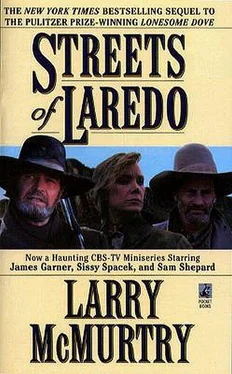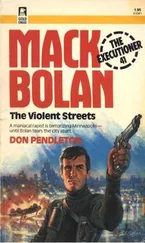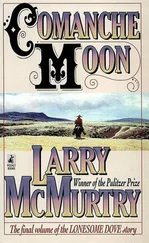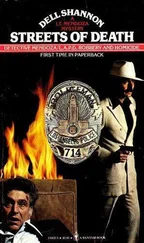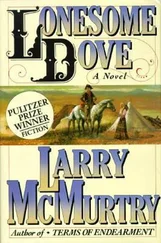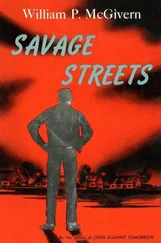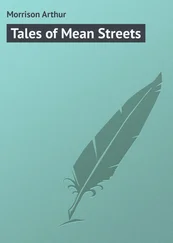"What's wrong with your man?" Brookshire asked. "Was he sick?" "No, he's not sick, he's married," Call said. "Running down bandits don't tempt him no more." "But I thought it was arranged," Brookshire said, more than a little alarmed. His instructions from Colonel Terry had been to let Call bring his man. Pea Eye himself was a legend, in a small way--Brookshire had been looking forward to meeting him. It was said that he had escaped from the Cheyenne Indians and had walked over one hundred miles, naked, to bring help to the other famous ranger, Augustus McCrae. Not many men could have walked one hundred miles naked, in Cheyenne country, and survived. Brookshire doubted that he could walk one hundred miles naked across New Jersey, and yet New Jersey was settled country, and his home state to boot.
He had hoped to meet the man and hear about his adventures. So far, he was certainly not hearing about many of Captain Call's. It would have been entertaining to hear about the hundred-mile walk, but evidently, it was not to be.
"I apologize--he's always been a reliable man," Call said. "He served with me more than thirty years--he's the last man I would have thought likely to marry. He never sought women, when he rode with me." "Oh well, I married myself," Brookshire said, thinking of Katie's fat legs. Those legs had once had great appeal to him, but their appeal had diminished over the years. There were times when he missed Katie, and times when he didn't. When he wasn't missing her, he sometimes considered that he had been a fool, to tie himself down. Indeed, he was hoping that one bonus from his long train trip might be a Mexican girl. The popular view in Brooklyn was that Mexican girls were pretty, lively, and cheap.
"Who'll we get to replace him?" he asked, remembering that Colonel Terry expected results--and not next year, either.
Joey Garza had struck seven times, stopping trains in remote areas of the Southwest, where trains were rarely bothered. He had killed eleven men so far, seemingly selecting his victims at random. Seven of the dead had been passengers; the rest, crew. Four of the seven trains had been carrying military payrolls, and one of the seven had Leland Stanford aboard. At that time, Leland Stanford was thought to be the richest man in California. The boy had taken his rings, his watch, and the fine silk sheets off the bed in his private car. He also took his diamond cuff links. Leland Stanford was not a man who took kindly to having his sheets removed by a young Mexican not yet out of his teens. It was Stanford who stoked the fire under Colonel Terry, prompting him to hire expensive help such as Captain Woodrow Call.
It disturbed Brookshire that their plan had already gone awry, though they were still hundreds of miles from the border, and no doubt, many more hundreds of miles from where Joey Garza was to be found, if he was found.
One thing could be said with certainty about Colonel Terry: he did not like for plans to go awry. If some did go awry anyway, someone invariably got blamed, and most of the time that someone was Brookshire.
"I'll be lucky not to get fired," Brookshire said--he was mainly just thinking out loud.
"Why? Pea Eye was never your responsibility," Call said. "You never even met the man, and can't be blamed for the fact that he married and settled down." "I can be blamed for anything," Brookshire assured him. "I'm one of those people everybody blames, when there's a misfortune." For several minutes he sat with his head down, feeling sorry for himself. It seemed to him that life was nothing but one misfortune after another, and he got blamed for them all. He had been the seventh boy in a family of eight children. His mother had blamed him for not being the little girl she had hoped for; his father blamed him for not being able to go out in the world and get rich. His brothers blamed him for being a runt; and in the army, he was blamed for being a coward.
That one was fair, he had to admit. He was a coward, more or less. Fisticuffs appalled him, and gunfire alarmed him violently. He didn't like storms or lightning, and preferred to live on the first floor of apartment buildings, so escape would be easier in case of fire. He had been afraid that Katie wouldn't marry him, and once she did, he began to fear she would leave him, or else die.
But of all the things he had managed to be frightened of in his life, Colonel Terry's anger was unquestionably the most powerful.
Brookshire feared the Terry temper so much that he would rather bite his tongue off than give the Colonel even the smallest particle of bad news.
Call didn't doubt what Brookshire said.
A man who couldn't even control his hat was likely to attract a lot of blame. In that respect, Call reflected, Brookshire was not unlike Pea Eye himself. Pea had a strange tendency to assume that any bad turn of fortune was probably his fault. On the long cattle drive to Montana, various things happened that could not easily have been prevented.
One morning the little Texas bull that all the cowboys feared got into a fight with a grizzly.
The grizzly definitely didn't fear the bull; the fight was more or less a draw, though the bull got much of his hide ripped off, in the process of holding his own.
For reasons that no one could fathom, Pea Eye decided the encounter was his fault. He felt he should either have roped the bull, or shot the bear, though neither, in Call's view, would have been sensible procedure. If he had roped the bull, it might well have jerked Pea's horse down, in which case the bear would have got them both. If Pea had tried to kill the grizzly with a sidearm, the bear might have turned on the cowboys, instead of on the bull.
Five years and more later, Pea Eye was still worrying about his role in the encounter. What it showed was that people weren't sensible, when it came to assigning or assuming blame.
People were rarely sensible about anything, in Call's opinion. He had taken, he thought, a sensible approach to Pea Eye's desertion while he was actually in the man's presence--but now that he wasn't actually faced with his old corporal, Call found that his anger was rising. He had taken Pea Eye into his troop of Rangers when the latter was no more than a boy, too young to be an official member of any military organization.
But, because the boy looked honest, Call had bent the rules, which were more bendable then than they would become.
Now, it seemed, Pea Eye had deserted him in favor of matrimony, and the desertion left a bitter taste in his mouth. Call had supposed that if he could count on any of his old troop, he could count on Pea. Yet it turned out to be Lorena, once a whore, now a schoolteacher, who could count on Pea.
Call had no doubt that Clara Allen had been behind the match, and though fifteen years had passed, he still resented her interference. It was one thing to educate Lorena; whores had as much right to improve themselves as anybody else. But it was another thing to arrange matters so that the girl could take his most trusted helper.
Dish Boggett, the best of the Hat Creek cowboys and far better on horseback than Pea had ever been, had mooned over Lorena for years. Why couldn't Clara have nudged the girl into accepting Dish? Up to that time Pea had shown no great inclination to domesticity, though he briefly courted, or was courted by, a rather bossy widow in the village of Lonesome Dove.
The trail drive had ended that, if there'd been anything to end.
Because of Clara's meddling, or Lorena's boldness, or a combination of the two, Call was riding south with only a Yankee office worker, to go after the most enterprising young bandit to show up on the border in a decade or more.
It galled Call--when he next encountered Pea Eye, he intended to make that clear.
"I regret now that I didn't force him," Call said to Brookshire. "It leaves us shorthanded. It's just that I never expected to have to force Pea Eye. He's always followed me, before." Brookshire noticed that the Captain looked a little tight around the mouth.
Читать дальше
